
Find Help
More Items From Ergsy search
-
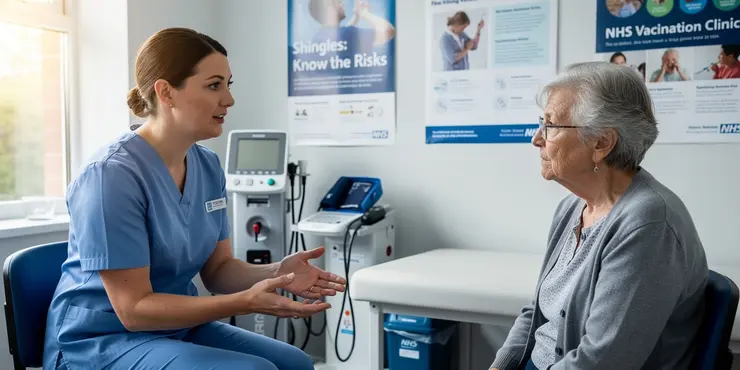
Are there any complications associated with shingles?
Relevance: 100%
-

Are there any complications associated with shingles?
Relevance: 100%
-

What is Shingles?
Relevance: 75%
-
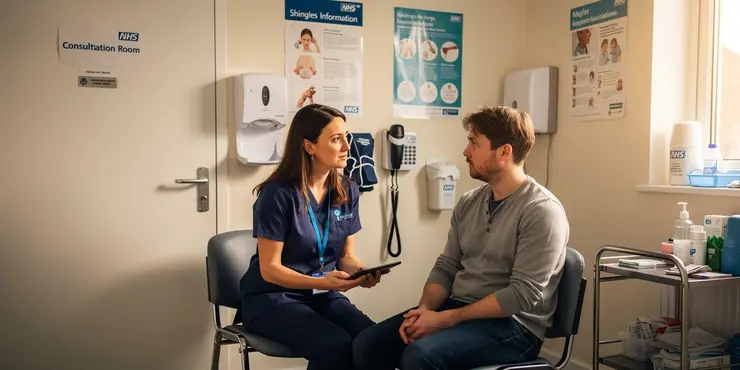
What is shingles?
Relevance: 75%
-

Is shingles contagious?
Relevance: 72%
-

How is shingles diagnosed?
Relevance: 71%
-

What are the symptoms of shingles?
Relevance: 71%
-

Is shingles contagious?
Relevance: 70%
-

Can shingles be prevented?
Relevance: 69%
-

What treatments are available for shingles?
Relevance: 69%
-

Can shingles be prevented?
Relevance: 68%
-
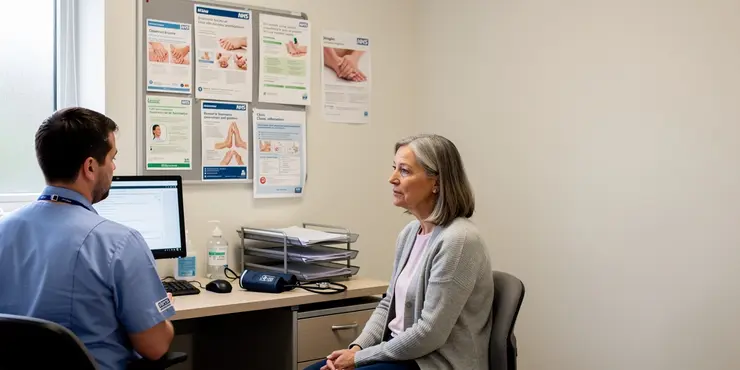
What treatments are available for shingles?
Relevance: 67%
-

Is the shingles vaccine safe?
Relevance: 66%
-
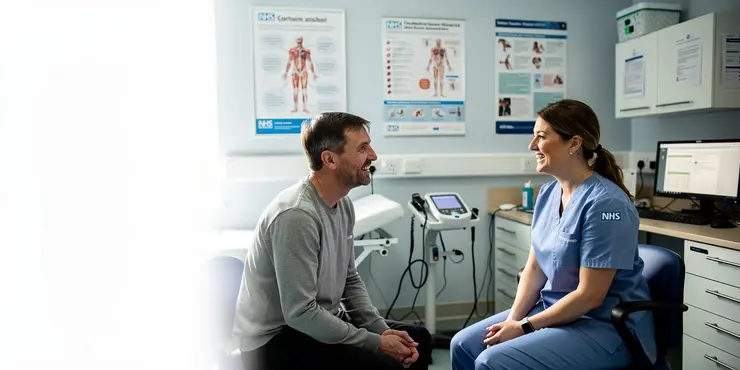
Can stress trigger shingles?
Relevance: 65%
-

Who is at risk of developing shingles?
Relevance: 64%
-

Can the shingles vaccine cause chickenpox?
Relevance: 64%
-

At what age should one get the shingles vaccine?
Relevance: 63%
-
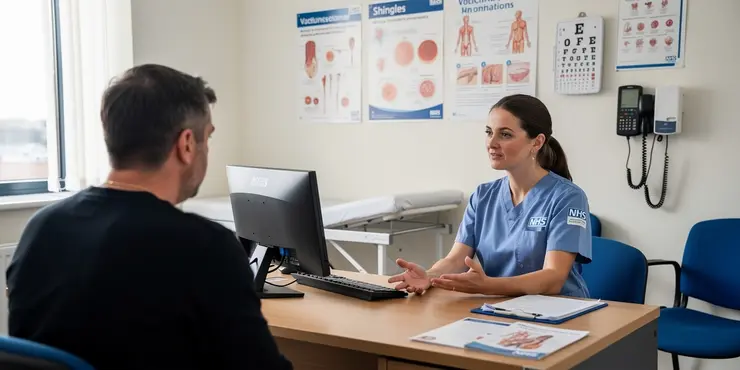
What causes shingles?
Relevance: 62%
-

What causes shingles?
Relevance: 62%
-

Can stress trigger shingles?
Relevance: 62%
-
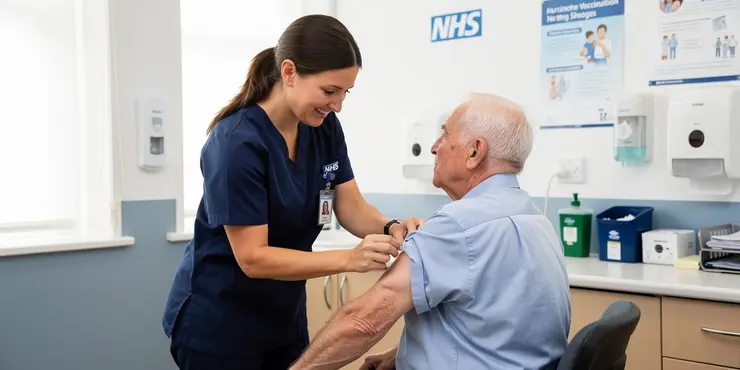
At what age should one get the shingles vaccine?
Relevance: 61%
-

Can the shingles vaccine cause chickenpox?
Relevance: 60%
-
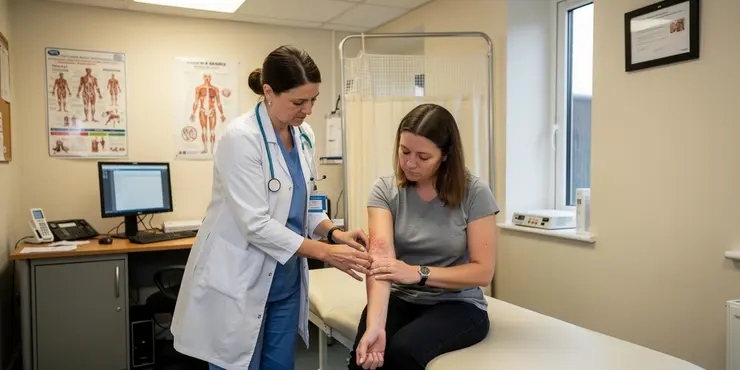
How is shingles diagnosed?
Relevance: 50%
-

What are the complications of chickenpox?
Relevance: 47%
-

Who is at risk of developing shingles?
Relevance: 46%
-
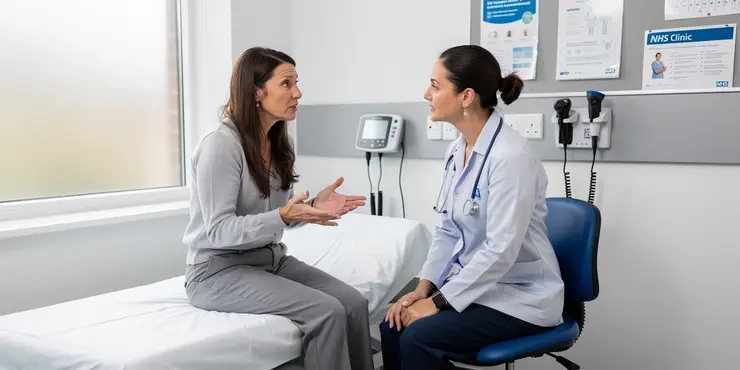
What should I do if I think I have shingles?
Relevance: 45%
-

Can measles cause complications?
Relevance: 41%
-

How long does a shingles outbreak continue before it clears up?
Relevance: 40%
-

What are the potential complications of appendicitis?
Relevance: 40%
-

Can scabies cause complications?
Relevance: 39%
-
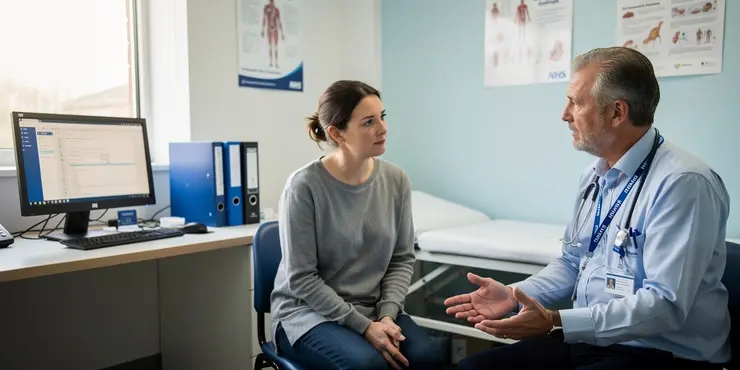
How long does a shingles outbreak continue before it goes?
Relevance: 39%
-
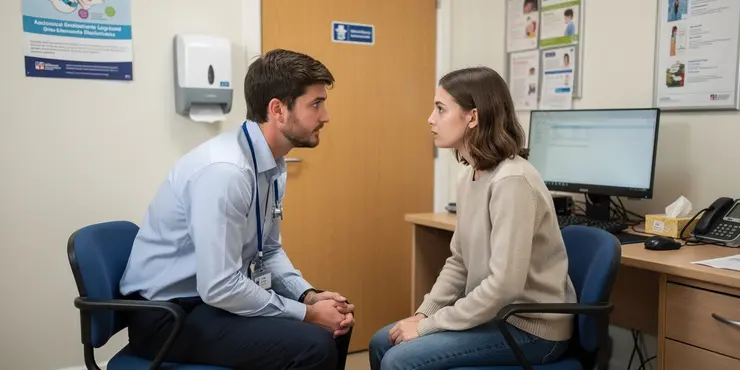
Can meningitis cause long-term complications?
Relevance: 38%
-
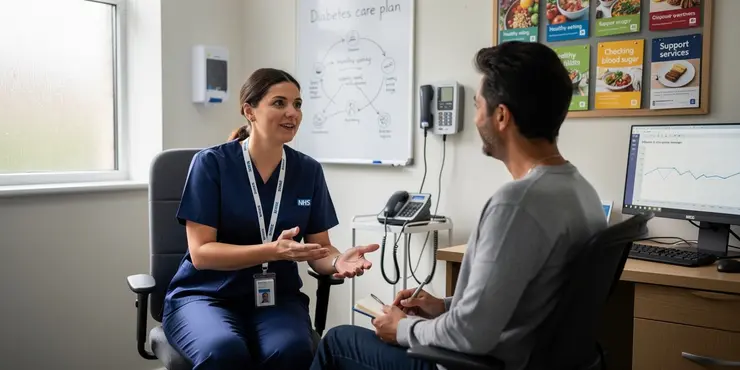
What complications are associated with Type 2 Diabetes?
Relevance: 37%
-

Are there any complications associated with Crohn's disease?
Relevance: 37%
-
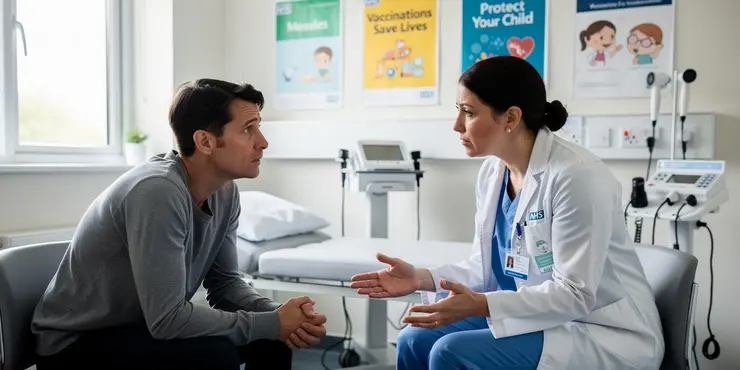
What complications can arise from measles?
Relevance: 37%
-
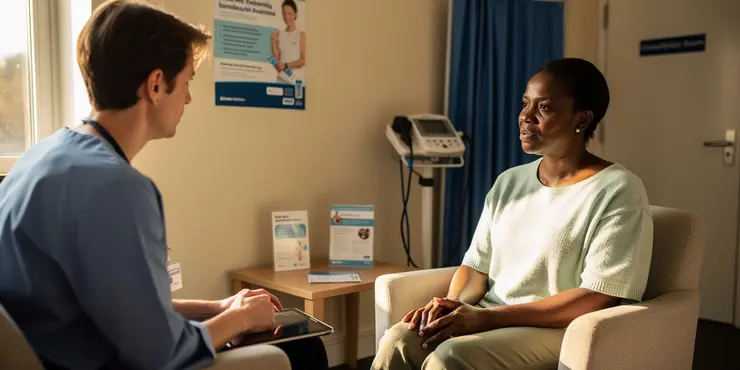
What are the complications of sickle cell disease?
Relevance: 37%
-

Who is most at risk for complications from H3N2?
Relevance: 36%
-
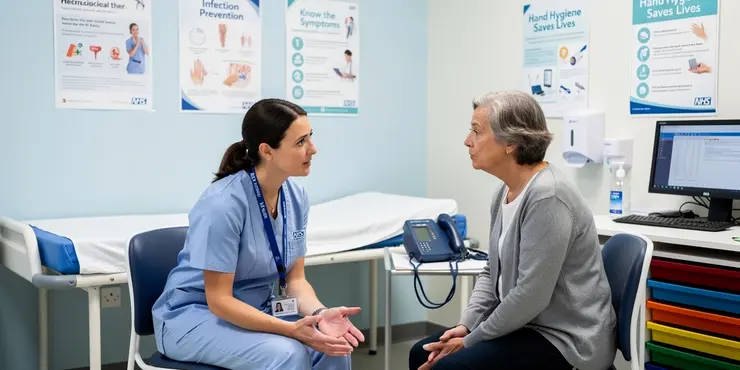
Can Nipah Virus cause neurological complications?
Relevance: 36%
-
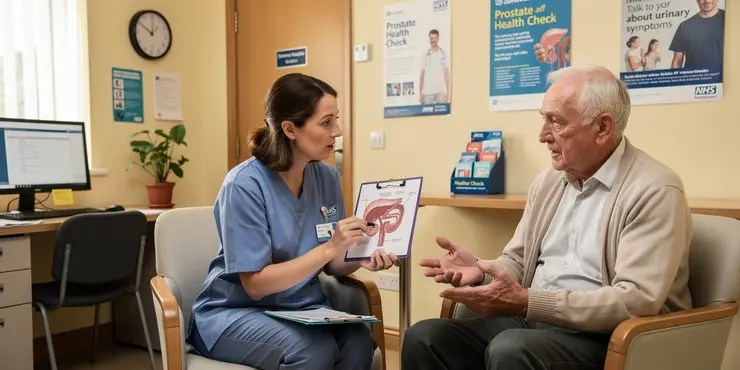
Are there any complications associated with untreated BPH?
Relevance: 36%
-

What are potential complications of nettle rash?
Relevance: 36%
Understanding Shingles and Its Complications
Shingles, also known as herpes zoster, is a viral infection that causes a painful rash. It occurs when the varicella-zoster virus, which causes chickenpox, is reactivated in nerve tissue. While many people recover without significant issues, some may experience complications, particularly if they are older or have weakened immune systems.
Postherpetic Neuralgia (PHN)
One of the most common complications associated with shingles is postherpetic neuralgia (PHN). This condition occurs when nerve fibers are damaged during the shingles outbreak, leading to chronic pain that persists even after the rash has healed. The pain can be severe and debilitating, impacting quality of life. PHN is more likely to occur in older adults, particularly those over the age of 60.
Vision and Hearing Complications
When shingles affects the area around the eyes, it is known as herpes zoster ophthalmicus. This form of shingles can lead to serious complications, including infections within the eye, corneal ulcers, and even vision loss if not treated promptly. In some cases, shingles can also affect hearing. If the virus spreads to the ear, it can cause a condition known as Ramsay Hunt syndrome, which may lead to hearing loss, vertigo, and facial paralysis.
Neurological Complications
Although rare, shingles can lead to various neurological complications. These include encephalitis, which is an inflammation of the brain, and myelitis, which is an inflammation of the spinal cord. Another potential complication is Guillain-Barré syndrome, a condition that affects the peripheral nervous system, leading to muscle weakness and even paralysis.
Skin Infections
The rash associated with shingles can become infected with bacteria, particularly if the blisters are scratched or not kept clean. Bacterial skin infections can delay healing and may require treatment with antibiotics. Preventing such infections involves maintaining good hygiene and, if necessary, using topical antiseptics.
Preventive Measures and Vaccination
Understanding the potential complications of shingles underscores the importance of prevention. In the UK, individuals over the age of 70 can receive the shingles vaccine on the NHS. The vaccine significantly reduces the risk of developing shingles and its associated complications. Even if vaccinated, maintaining a healthy immune system through a balanced diet, regular exercise, and adequate sleep can also help protect against shingles.
Conclusion
While shingles is generally manageable, the risk of complications, especially postherpetic neuralgia, eye and ear complications, neurological issues, and skin infections, make it a concern for many. Awareness and prevention through vaccination can play crucial roles in reducing the incidence and severity of these complications. Anyone experiencing symptoms of shingles should seek medical advice promptly to minimise potential risks.
Frequently Asked Questions
What are common complications of shingles?
Common complications of shingles include postherpetic neuralgia, bacterial skin infections, and eye complications if the rash appears near the eyes.
What is postherpetic neuralgia?
Postherpetic neuralgia is a condition where nerve pain persists in the area of the shingles rash even after the rash has healed.
Can shingles cause eye problems?
Yes, if shingles affects the facial nerve near the eye, it can lead to eye problems such as infections, vision loss, or even blindness.
Are there any skin complications with shingles?
Yes, shingles can lead to bacterial skin infections if the blisters break and become infected.
How does shingles affect pregnant women?
While shingles itself is not directly harmful to the pregnancy, complications can arise if a pregnant woman has never had chickenpox or the vaccine and is exposed to the virus.
Can the shingles virus spread to other parts of the body?
Shingles generally affects one area of the body, but severe cases can lead to more widespread effects, especially in immunocompromised individuals.
What is Ramsay Hunt syndrome?
Ramsay Hunt syndrome is a complication of shingles that occurs when the outbreak affects the facial nerve, leading to facial paralysis and hearing loss.
Can shingles lead to hearing complications?
Yes, if shingles affects the nerves near the ear, it can lead to hearing loss or tinnitus.
Is neuropathic pain a complication of shingles?
Yes, neuropathic pain is a common complication and can be debilitating, often requiring treatment to manage.
Can shingles affect internal organs?
In rare cases, shingles can affect internal organs such as the brain, liver, or lungs, especially in individuals with weakened immune systems.
What is disseminated zoster?
Disseminated zoster is a severe form of shingles where the virus spreads beyond the initial area, potentially affecting several parts of the body.
Can shingles lead to long-term nerve damage?
Yes, severe cases of shingles can lead to long-term nerve damage, resulting in chronic pain or other sensory issues.
Is scarring a potential complication of shingles?
Yes, if the shingles blisters are scratched or become infected, they can lead to scarring.
How can shingles affect the immune system?
Shingles itself does not generally weaken the immune system, but it can lead to complications if the person already has a compromised immune system.
Can shingles lead to depression or anxiety?
The chronic pain from shingles, especially postherpetic neuralgia, can contribute to depression and anxiety.
Are complications of shingles more common in older adults?
Yes, older adults are more at risk of complications such as postherpetic neuralgia and may have more severe symptoms.
How is postherpetic neuralgia treated as a complication of shingles?
Postherpetic neuralgia can be treated with medications such as anticonvulsants, antidepressants, and pain relievers, as well as topical treatments.
Can shingles lead to encephalitis?
In rare cases, shingles can cause encephalitis, an inflammation of the brain, especially in individuals with weakened immune systems.
Are there any gastrointestinal complications associated with shingles?
Shingles typically does not cause gastrointestinal complications, but severe infections can lead to secondary issues in vulnerable individuals.
Can shingles cause muscle weakness?
Yes, if the nerves affected by shingles control muscles, it can lead to muscle weakness or paralysis.
Useful Links
This website offers general information and is not a substitute for professional advice.
Always seek guidance from qualified professionals.
If you have any medical concerns or need urgent help, contact a healthcare professional or emergency services immediately.
Some of this content was generated with AI assistance. We’ve done our best to keep it accurate, helpful, and human-friendly.
- Ergsy carfully checks the information in the videos we provide here.
- Videos shown by Youtube after a video has completed, have NOT been reviewed by ERGSY.
- To view, click the arrow in centre of video.
- Most of the videos you find here will have subtitles and/or closed captions available.
- You may need to turn these on, and choose your preferred language.
- Go to the video you'd like to watch.
- If closed captions (CC) are available, settings will be visible on the bottom right of the video player.
- To turn on Captions, click settings .
- To turn off Captions, click settings again.
More Items From Ergsy search
-

Are there any complications associated with shingles?
Relevance: 100%
-

Are there any complications associated with shingles?
Relevance: 100%
-

What is Shingles?
Relevance: 75%
-

What is shingles?
Relevance: 75%
-

Is shingles contagious?
Relevance: 72%
-

How is shingles diagnosed?
Relevance: 71%
-

What are the symptoms of shingles?
Relevance: 71%
-

Is shingles contagious?
Relevance: 70%
-

Can shingles be prevented?
Relevance: 69%
-

What treatments are available for shingles?
Relevance: 69%
-

Can shingles be prevented?
Relevance: 68%
-

What treatments are available for shingles?
Relevance: 67%
-

Is the shingles vaccine safe?
Relevance: 66%
-

Can stress trigger shingles?
Relevance: 65%
-

Who is at risk of developing shingles?
Relevance: 64%
-

Can the shingles vaccine cause chickenpox?
Relevance: 64%
-

At what age should one get the shingles vaccine?
Relevance: 63%
-

What causes shingles?
Relevance: 62%
-

What causes shingles?
Relevance: 62%
-

Can stress trigger shingles?
Relevance: 62%
-

At what age should one get the shingles vaccine?
Relevance: 61%
-

Can the shingles vaccine cause chickenpox?
Relevance: 60%
-

How is shingles diagnosed?
Relevance: 50%
-

What are the complications of chickenpox?
Relevance: 47%
-

Who is at risk of developing shingles?
Relevance: 46%
-

What should I do if I think I have shingles?
Relevance: 45%
-

Can measles cause complications?
Relevance: 41%
-

How long does a shingles outbreak continue before it clears up?
Relevance: 40%
-

What are the potential complications of appendicitis?
Relevance: 40%
-

Can scabies cause complications?
Relevance: 39%
-

How long does a shingles outbreak continue before it goes?
Relevance: 39%
-

Can meningitis cause long-term complications?
Relevance: 38%
-

What complications are associated with Type 2 Diabetes?
Relevance: 37%
-

Are there any complications associated with Crohn's disease?
Relevance: 37%
-

What complications can arise from measles?
Relevance: 37%
-

What are the complications of sickle cell disease?
Relevance: 37%
-

Who is most at risk for complications from H3N2?
Relevance: 36%
-

Can Nipah Virus cause neurological complications?
Relevance: 36%
-

Are there any complications associated with untreated BPH?
Relevance: 36%
-

What are potential complications of nettle rash?
Relevance: 36%


